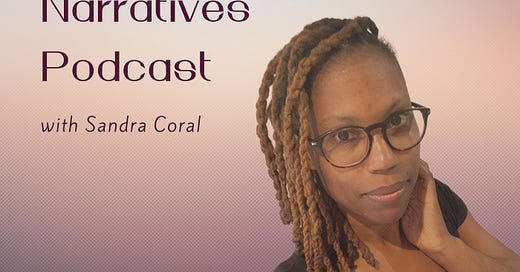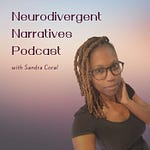While writing one of my previous Substack essays, I was reminded of something I read ages ago by Pema Chodron in When Things Fall Apart. (Stay with me on this one. Just because the medicine tastes like shit doesn’t mean it not gonna work, right? Anyway…) In the book, Chodron describes hope and fear as being on two sides of the same coin: where there’s one, there’s the other, and both are the root of our pain.
At that moment, I paused because I truly felt like she was on something.
Yes, on something. Not, on to something.
I mean, fear is definitely the root of my pain. That made complete sense to me from both a body and mind standpoint. When I’m fearful and trying to make decisions, I’m not thinking clearly. Decisions made from a place of fear aren’t coming from the thinking part of my brain. I also know that my brain is wired to protect a fairly sensitive nervous system. Any threat (real or perceived) will get me reacting first and asking questions later if I’m not careful.
Fear is not my friend most of the time. It’s taken me a long time to attempt to pause when I’m dysregulated, move through the fear and then think about how I need to respond. Most things I’m afraid of aren’t actually a threat to my life, even if my body believes they are. My brain is still learning to discern this to support my body in moving out of its preferred protective states. States that eventually lead to it doing nothing.
But hope as a root of my pain?! Nah, not that.
Hope feels completely different. Hope gives me something to dream about. Hope is what gets me through the tough times. It makes me believe that anything else is possible than the shitstorm I’m currently in. Where would I be without hope?! If fear kept me stuck, then hope was like a reprieve from the fear. Hope was my vision that change could happen even when I was too afraid (or stuck!) to make any change myself.
But that was my problem.
The problem.
Underlying hope and fear is the need to change our current experience. We’re conditioned to believe something must be wrong with us (and our lives) because we’re uncomfortable and suffering. Fortunately, there is nothing wrong with us. Suffering is a natural part of being human. But what is unfortunate is our resistance to staying in the moment when things fall apart. By hoping for things to be different or becoming fearful of what might change or end, we add to our discomfort - and therefore, suffering.
When we cling to or grasp for things that disconnect us from the moment (like addictions, for example), they merely prolong our suffering, not diminish it. As long as we can’t develop a relationship with the fact that things won’t always go how we want and everything’s always in the process of change (otherwise known as death and impermanence), we’ll continue to add to our feelings of discomfort (ie, our suffering).
Chodron writes, “As long as we’re addicted to hope, we feel that we can tone our experience down or liven it up or change it somehow, and we continue to suffer a lot… Hope and fear come from a feeling that we lack something; they come from a sense of poverty… We hold on to hope and hope robs us of the present moment.”
I had to reread those lines a few times to understand what Chodron meant. I mean, wasn’t hope a good thing?!? Didn’t being hopeful look like thinking positively about things changing?
Not when it keeps us from accepting the reality of what we’re sensing, it doesn’t.
When we learn to let go of hoping for things to be different or fearing when things end or change, we reconnect to ourselves again. This develops trust in our ability to handle the present moment. Then, we can acknowledge and explore what we’re feeling, better understanding the nature of our experience instead of avoiding it. We learn to see that nothing’s wrong with us for sensing discomfort and become more compassionate towards ourselves because of it.
Responding with self-compassion allows us to attend to our needs rather than denying our pain. The more we meet our needs, the more we build the capacity to move from being stuck in fear and hoping for change while doing nothing. But to do all that, we must bravely accept the nature of life as it is. In life, things do fall apart, and there is pain. We can’t avoid these facts. They will happen and bring plenty of pain and discomfort when they do.
But we don’t have to keep adding to our suffering.
Learning to give up all hope of alternatives to our present experience means that we can “be in a joyful relationship with our lives, one that no longer ignores the realities of impermanence and death”. Without experiencing the pains in life, we can’t experience its joy, either, and we have everything we need in the moment to experience both.
When we stop resisting these truths, we begin to relax with ourselves and the uncertainty in our lives. We start to accept our realities with more courage to face pain and discomfort because we finally see that we’ll do what’s necessary to meet our needs as they arise with self-compassion. It doesn’t mean we’re bad because we have a need and sense discomfort from it, no matter what we’ve been taught to believe.
Life brings up a kaleidoscope of sensations in our bodies. When something ends, something else begins. Change is always happening, and not in the way we hope. Things come together and fall apart.
We will, too.
But it’s trusting that we’re capable and allowed to meet our needs as they arise that’s the hard part.
Tell me, what are you learning to let go of to experience more of your life and rebuild self-trust?








Share this post